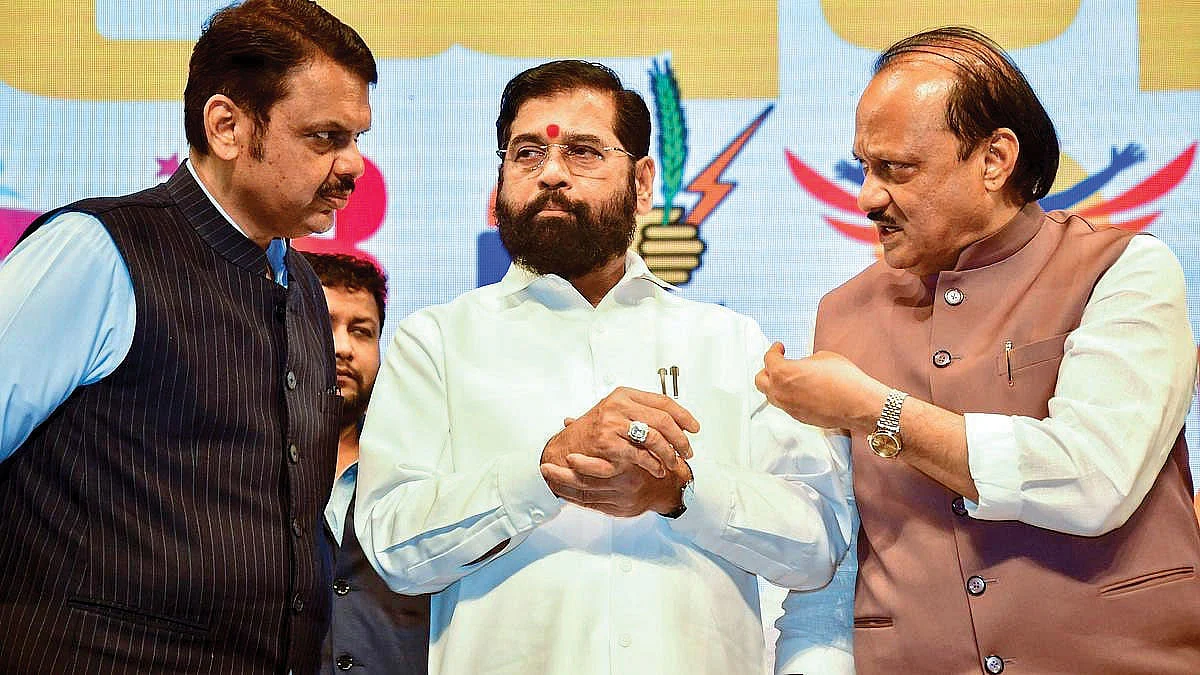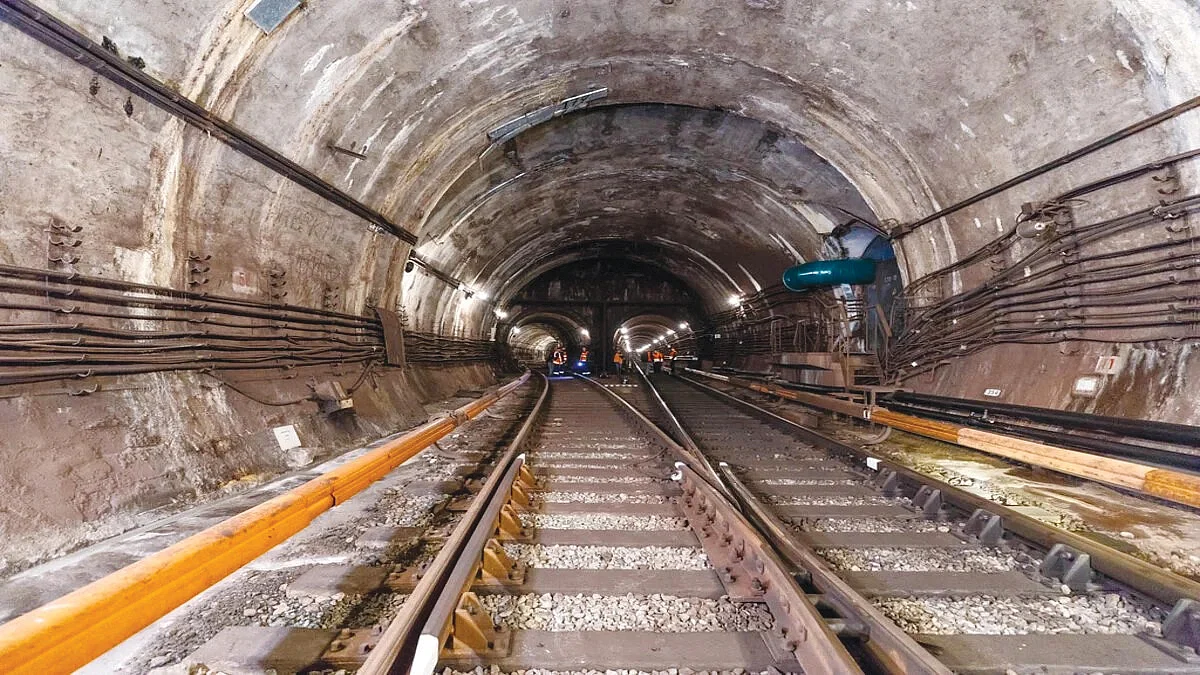Maharashtra: Resistance builds as Dharavi ‘redevelopment’ plan rolls out
Fresh waves of protest from Dharavi residents, who argue that the plan was finalised without consulting them

The Maharashtra government, led by the BJP, has approved the master plan for the ‘redevelopment’ of Dharavi — Mumbai’s largest and one of Asia’s most iconic slums. The approval has triggered fresh waves of protest from Dharavi residents, who argue that the plan was finalised without consulting them.
Congress MP Varsha Gaikwad has written to chief minister Devendra Fadnavis demanding that the project be halted. She alleges that the master plan violates mandatory provisions under the MRTP Act and was pushed through using outdated approval documents. In a post on social media platform X, Gaikwad criticised the plan as ‘a premeditated scam masquerading as development’ and ‘the most unjust urban displacement blueprint in India’s history’.
Despite the pushback, CM Fadnavis defended the plan, stating that the redevelopment would preserve the “soul of Dharavi” while modernising its infrastructure.
The project is being implemented by Navbharat Mega Developers Pvt Ltd (NMDPL), a joint venture between the state government and the Adani Group. While the master plan has been greenlit, several components remain in limbo — including land transfers, tax waivers and regulatory exemptions. According to the Indian Express, the developer is seeking concessions related to land premiums and is eyeing multiple plots — including the Mother Dairy property in Kurla, salt pans in Mulund Malvani and other locations — for relocating ineligible slum residents.
On 3 June, the state cabinet approved amendments to the terms of transferring 8.5 hectares of land in Kurla from the department of dairy development. The Adani Group holds an 80 per cent stake in the project, with the remaining 20 per cent retained by the state government.
Dharavi residents remain unconvinced that they will receive the free homes and shops promised to them. The government claims that eligible families will be provided homes at no cost, while ineligible residents will be offered homes under a paid rehabilitation scheme or rental accommodations. Housing prices and rental rates will be determined by the project’s CEO or a special executive officer.
MP Gaikwad has also raised questions about the legitimacy of the eligibility survey. She claims that many residents were coerced into participating and that even after three years, only 40 per cent of flats have been documented. The overall project, slated for completion by 2032, is expected to cost Rs 95,790 crore.
Mahayuti showers favours on ineligible women
Maharashtra’s ruling Mahayuti alliance — comprising the BJP, Shiv Sena (Shinde faction) and NCP (Ajit Pawar group) — attributes its electoral victory to the popular Majhi Ladki Bahin Yojana. However, the scheme is increasingly being exposed for its blatant misuse of public funds, with serious allegations of financial mismanagement and beneficiary fraud emerging.
Approximately 3,000 government employees have been found to be fraudulently enrolled in the scheme, which offers a monthly handout to women. State finance minister and NCP leader Ajit Pawar admitted the oversight, blaming it on the inability to conduct thorough eligibility checks due to the model code of conduct during its rollout.
This isn’t the first instance of misuse — women who had already received Rs 1,000 under the Namo Shetkari Maha Sanman Yojana also benefited from the Ladki Bahin scheme. In January 2025, the number of ineligible beneficiaries rose to 5 lakh, reducing the total number of recipients from 2.46 crore in December 2024 to 2.41 crore.

Between July and December 2024, Rs 540 crore was transferred to these accounts. Among the disqualified beneficiaries were 1.5 lakh women aged over 65 and 1.6 lakh women who owned four-wheelers or received benefits under other state schemes. Another 2.3 lakh were already drawing support through the Sanjay Gandhi Niradhar Yojana, disqualifying them from this scheme.
Ineligible government employees received around Rs 3 crore in benefits. The total number of ineligible women has now crossed 9 lakh. The state government is attempting to compile data on taxpaying beneficiaries, but access to information from the income tax department remains blocked due to lack of clearance from the Union finance ministry.
Shockingly, despite these revelations, the government also transferred Rs 335.70 crore from the tribal development department to cover scheme payments — violating Niti Aayog guidelines. Although the administration denies this, the debate continues over whether the money should be recovered from ineligible recipients.
Revenue minister Chandrashekhar Bawankule supports recovering the funds, while CM Fadnavis, finance minister Ajit Pawar and women and child development minister Aditi Tatkare have opposed clawbacks. Critics argue the government’s leniency is politically motivated, with BMC elections on the horizon.
During previous election campaigns, Mahayuti leaders had promised to increase the monthly payout under the scheme from Rs 1,500 to Rs 2,100. The Opposition has consistently criticised the scheme in light of the state’s growing fiscal deficit, which now stands at a staggering Rs 2 lakh crore.

Tenders cancelled, Fadnavis government under fire
In a significant setback to the Fadnavis government, the Mumbai Metropolitan Region Development Authority (MMRDA) has cancelled tenders for two major infrastructure projects — the Thane–Ghodbunder–Bhayander tunnel and an elevated road project — worth over Rs 14,000 crore. These projects are part of the Mumbai Coastal Road extension, and were set to connect Thane with Mira-Bhayander.
The decision followed a legal challenge in the Supreme Court by Larsen & Toubro (L&T), a major engineering firm disqualified during the bidding process. The contracts were awarded to Megha Engineering & Infrastructure Ltd., a company that has faced scrutiny for its substantial donations to political parties through electoral bonds.
Megha Engineering is also involved in the Mumbai–Ahmedabad bullet train project and is building the underground Bandra-Kurla Complex station in collaboration with Hindustan Construction Company.
The cancellation of the tenders has sparked political backlash. Shiv Sena (UBT) leader Aaditya Thackeray questioned the rationale behind the government’s withdrawal, suggesting it was a cover-up for a larger scam. “No contractor sues over a tender unless there’s foul play. Cancelling the tender doesn’t mean the matter is clean. The sword was hanging over MMRDA,” he said.
Thackeray demanded an investigation by Central agencies such as the EOW, income tax department or Enforcement Directorate, and urged that Fadnavis take direct control of MMRDA. He also alleged that tender terms were designed to favour selected contractors.
Echoing the sentiment, Maharashtra Congress president Harshavardhan Sapkal called for a judicial inquiry into all mega infrastructure projects in the state, citing “widespread corruption”.
Follow us on: Facebook, Twitter, Google News, Instagram
Join our official telegram channel (@nationalherald) and stay updated with the latest headlines
